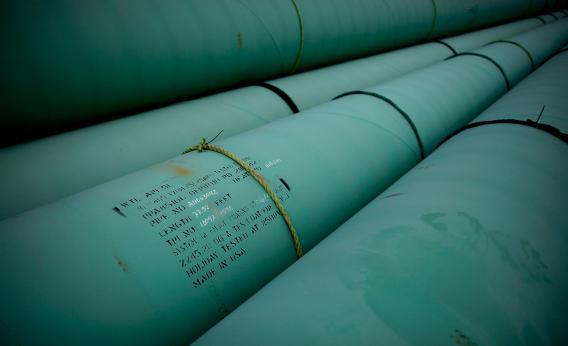The biggest economic winner from the movement against the proposed Keystone XL pipeline turns out to be freight railroad companies. As Lisa Hymas explains, since freight rail tracks are already in existence, you don’t need to go through any pipeline-style new permitting and public-review process to simply rejigger the trains to ship more oil.
There’s been year-on-year growth in freight rail shipments of oil of about 360,000 barrels per day which is “the equivalent of adding a ‘major’ pipeline” and has sent some railroad stocks surging.
That’s not to say that holding up pipeline construction has no impact on fossil fuel production or consumption. But there is a “the spice must flow” aspect to the situation. In the absence of a specific national policy to curtain CO2 emissions or fossil fuel extraction, you can plug up specific transportation modes but the economic incentive to find an alternative is pretty enormous.
